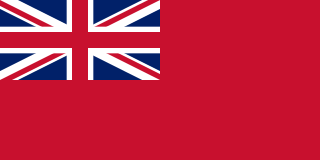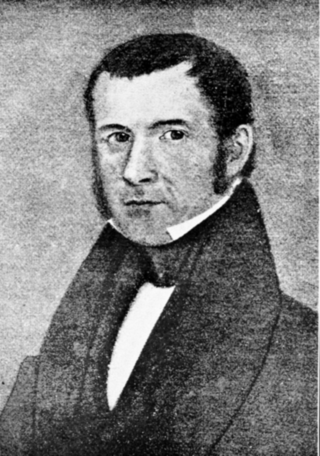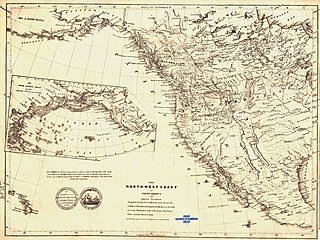Northwest is a compass point.
Northwest or north-west or north west may also refer to:
Contents
- Northwest (direction), an intercardinal direction
Northwest is a compass point.
Northwest or north-west or north west may also refer to:

The Northwest Territories is a federal territory of Canada. At a land area of approximately 1,144,000 km2 (442,000 sq mi) and a 2016 census population of 41,790, it is the second-largest and the most populous of the three territories in Northern Canada. Its estimated population as of 2023 is 45,668. Yellowknife is the capital, most populous community, and only city in the territory; its population was 19,569 as of the 2016 census. It became the territorial capital in 1967, following recommendations by the Carrothers Commission.
Columbia most often refers to:
Northern may refer to the following:

Northern Canada, colloquially the North or the Territories, is the vast northernmost region of Canada, variously defined by geography and politics. Politically, the term refers to the three territories of Canada: Yukon, Northwest Territories and Nunavut. This area covers about 48 per cent of Canada's total land area, but has less than 0.5 per cent of Canada's population.

The Northwest Ordinance, enacted July 13, 1787, was an organic act of the Congress of the Confederation of the United States. It created the Northwest Territory, the new nation's first organized incorporated territory, from lands beyond the Appalachian Mountains, between British North America and the Great Lakes to the north and the Ohio River to the south. The upper Mississippi River formed the territory's western boundary. Pennsylvania was the eastern boundary.

The North-Western Territory was a region of British North America extant until 1870 and named for where it lay in relation to Rupert's Land.

The following is an alphabetical list of topics related to Canada.
Peter Pond was an American explorer, cartographer, merchant and soldier who was a founding member of the North West Company and the Beaver Club. Though he was born and died in Milford, Connecticut, most of his life was spent in northwestern North America, on the upper Mississippi and in western Canada.
Northeast is a compass point.

Hall Jackson Kelley was an American settler and writer from New England known for his strong advocacy for settlement by the United States of the Oregon Country in the 1820s and 1830s. A native of New Hampshire, he was a school teacher in Maine and Massachusetts, and a longtime resident of the latter state after graduating from Harvard College.
Northwestern or North-western or North western may refer to:

New Caledonia was a fur-trading district of the Hudson's Bay Company that comprised the territory of the north-central portions of present-day British Columbia, Canada. Though not a British colony, New Caledonia was part of the British claim to North America. Its administrative centre was Fort St. James. The rest of what is now mainland British Columbia was called the Columbia Department by the British, and the Oregon Country by the Americans. Even before the partition of the Columbia Department by the Oregon Treaty in 1846, New Caledonia was often used to describe anywhere on the mainland not in the Columbia Department, such as Fort Langley in the Fraser Valley.
Strathcona is a 19th-century variation of "Glen Coe", a river valley in Scotland. The word was invented for use in the title Baron Strathcona and Mount Royal, first used for Donald Smith (1820–1914), a Canadian railway financier, in order to avoid association with the Massacre of Glencoe of 1692.
A lama is a Tibetan teacher of the Dharma.

The Colony of Vancouver Island, officially known as the Island of Vancouver and its Dependencies, was a Crown colony of British North America from 1849 to 1866, after which it was united with the mainland to form the Colony of British Columbia. The united colony joined Canadian Confederation, thus becoming part of Canada, in 1871. The colony comprised Vancouver Island and the Gulf Islands of the Strait of Georgia.

The history of the Northwest Territories covers the period from thousands of years ago to the present day. Prior to European colonization, the lands that encompass present-day Northwest Territories were inhabited for millennia by several First Nations. European explorers and fur traders began to explore the region since the late-16th century. By the 17th century, the British laid claim to both the North-Western Territory and Rupert's Land; and granted the Hudson's Bay Company a commercial fur trade monopoly over the latter region.

Oregon pioneer history (1806–1890) is the period in the history of Oregon Country and Oregon Territory, in the present day state of Oregon and Northwestern United States.

The Treaty of Saint Petersburg of 1825 or the Anglo-Russian Convention of 1825, officially the Convention Concerning the Limits of Their Respective Possessions on the Northwest Coast of America and the Navigation of the Pacific Ocean, defined the boundaries between Russian America and British claims and possessions of the Pacific Coast, and the later Yukon and Arctic regions of North America. It was agreed that along the coast at the southern tip of Prince of Wales island northward to the 56 parallel, with the island wholly belonging to Russia, then to 10 marine leagues (56 km) inland going north and west to the 141st meridian west and then north to the "Frozen Ocean", the current Alaska/Canadian Yukon boundary, would be the boundary. The coastal limit had, the year before, been established as the limit of overlapping American claims in the parallel Russo-American Treaty of 1824. The Russian sphere in the region was later sold to the United States, eventually becoming the State of Alaska, while the British claim, along the coast to the south of parallel 54°40′ is now the coast of the Canadian province of British Columbia, and for inland regions it defined the western limit of what became the modern day Canadian territory of Yukon. It also defined associated rights and obligations concerning waters and ports in the region. The treaty, in establishing a vague division of coastal Russian interests and inland British interests between 56 and 60 degrees north latitude, led to conflicting interpretations of the meaning of the treaty's wording which later manifested in the Alaska Boundary Dispute between the United States on the one hand, and Canada on the other.
Marquette may refer to: